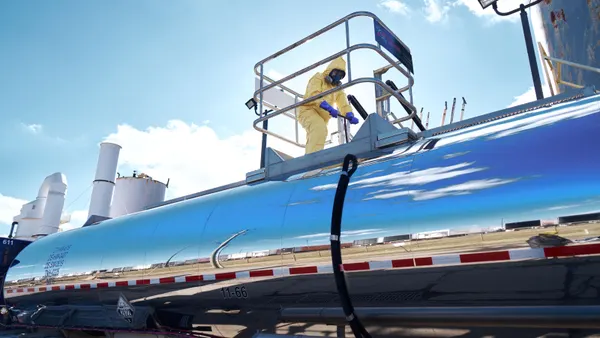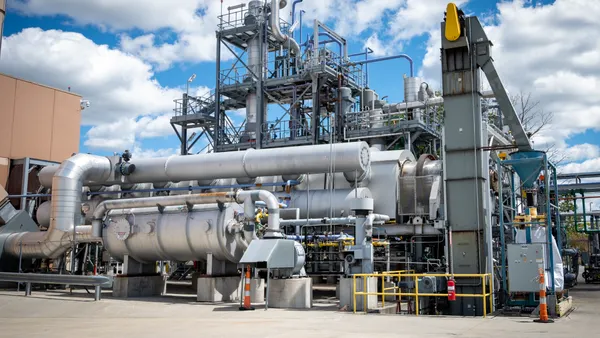Dive Brief:
- A task force created by Connecticut's General Assembly to reduce consumer packaging waste released its final report and voted 6-3 against endorsing extended producer responsibility (EPR). Instead, the report recommended a host of voluntary initiatives, more consumer education, more pay-as-you-throw programs, bottle bill updates and other incentives. A dissenting opinion in support of EPR was included.
- One of the more controversial proposals was using the estimated $30 million in unclaimed funds from the state's container deposit program for investments in recycling education and infrastructure. A letter submitted to the legislature's environment committee by 14 stakeholders, including the Container Recycling Institute and Strategic Materials, opposed using unclaimed funds for anything beyond systems related to the bottle bill. They also raised multiple issues with other proposals in the final report.
- Connecticut's Department of Energy & Environmental Protection (DEEP) has already expressed its support for packaging EPR, citing examples in Canadian provinces and other countries, and didn't reply to a request for comment about next steps. The Product Stewardship Institute (PSI) also supports the concept. CEO Scott Cassel told Waste Dive he wasn't surprised by the outcome because he felt the task force membership wasn't "balanced."
Dive Insight:
The state legislature created the "Task Force to Study Methods for Reducing Consumer Packaging that Generates Solid Waste" in 2016. Its goal was to develop solutions for decreasing packaging waste 25% by 2024 and reduce waste management costs, among other goals. Connecticut's packaging recycling rate is estimated to be around 45%. The state currently has a goal of reaching 60% diversion for all materials by 2024.
The group met multiple times over 2017 with a final vote Dec. 12. It was co-chaired by the president of Environmental Packaging International and vice president of Winter Bros. Waste Systems. Members also included representatives from the DEEP, PSI, Morgan Stanley, Connecticut Container Corporation, Connecticut Food Association, Consumer Technology Association, as well as an attorney.
Though not an official member, the National Waste & Recycling Association was following the process closely and felt pleased with the results.
"It's not insignificant to people in the industry and to the association nationally that this group of stakeholders weren't persuaded to recommend EPR for packaging in Connecticut," said Northeast Regional Director Steve Changaris.
The concept of making packaging producers responsible for the systems required to recycle their goods has become a highly debated concept for policymakers in the U.S., but not at a national level because of how waste regulations function. California is the only other state actively exploring a similar system.
National policies established by countries in the European Union, South America and elsewhere have been cited as examples of what is possible. Supporters point to those systems as a way for the U.S. to address its current patchwork of recycling infrastructure with more dedicated funding.
Connecticut has received positive attention for its recent efforts to standardize recycling rules statewide and support film drop-off programs. Though like in other Northeast states, some of its recycling infrastructure could benefit from an upgrade.
Financing potential from groups such as The Recycling Partnership and Closed Loop Fund was cited in the report, but the $30 million in unclaimed deposits seemed most intriguing to the NWRA.
Some, such as PSI, view this funding as too unreliable for multiple reasons. One is that the amount will change year-to-year. Another is that in a budget-strapped state it may be hard to convince legislators to relinquish control over money currently going into the general fund. Governor Dannel Malloy is currently trying to expand the container deposit program to increase that funding.
It will now be up to Connecticut's state legislators to move on the task force's ideas as they see fit, but any type of comprehensive EPR system for packaging doesn't appear imminent. Though for PSI and other supporters, this still isn't a reason to give up regional discussions that follow the example of Canadian provinces and other smaller programs.
"Programs need to start somewhere. It's always a good argument not to start something because we need the entire Northeast, or we need the whole country," said Cassel, noting that the state has already set an example with successful EPR programs for paint, mattresses, electronics and thermostats. "This system could definitely work in Connecticut."










